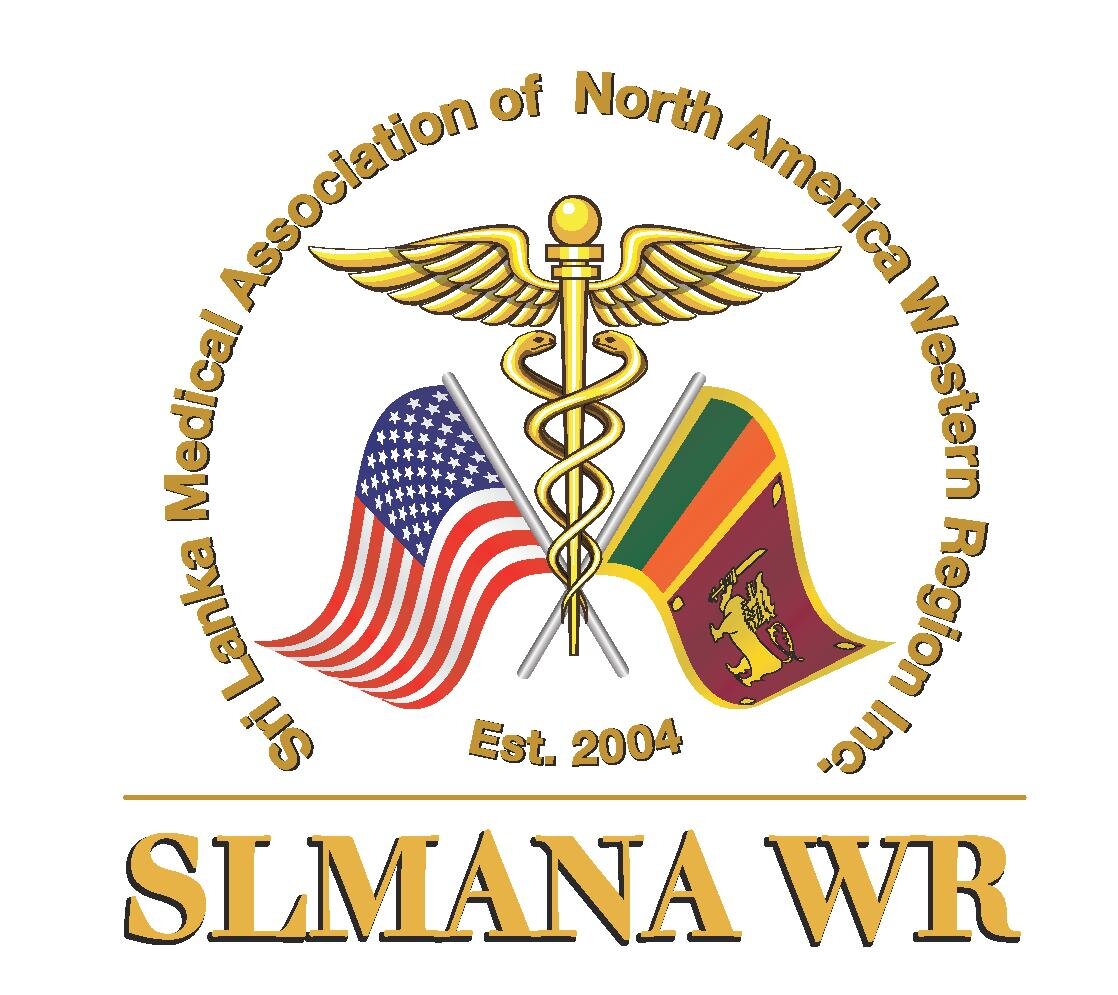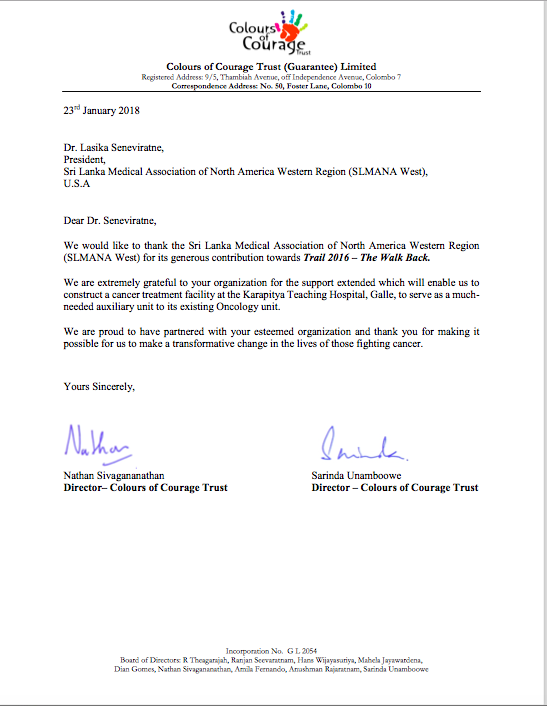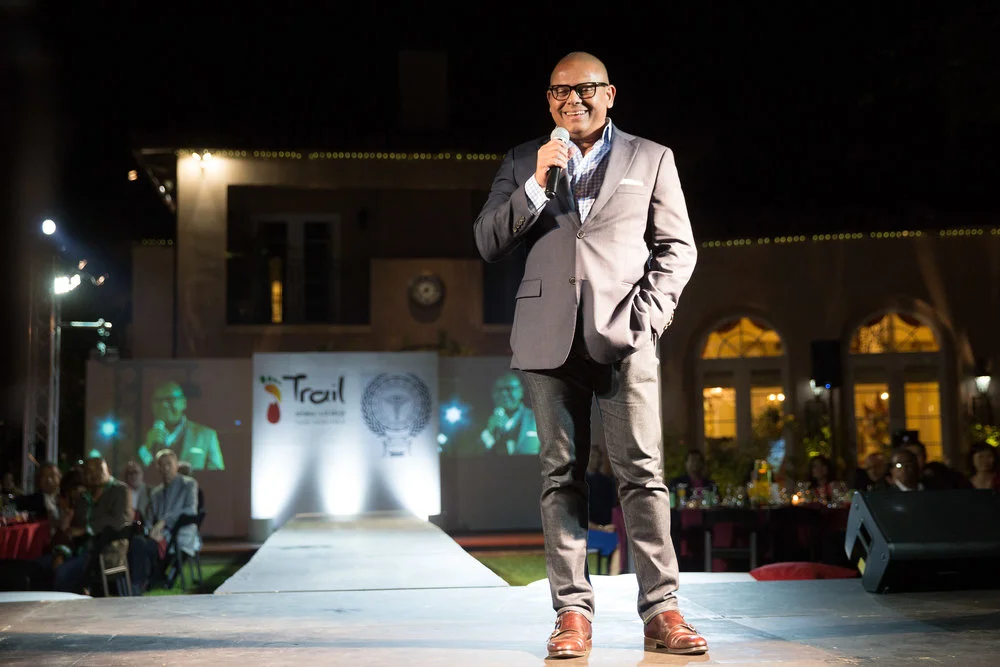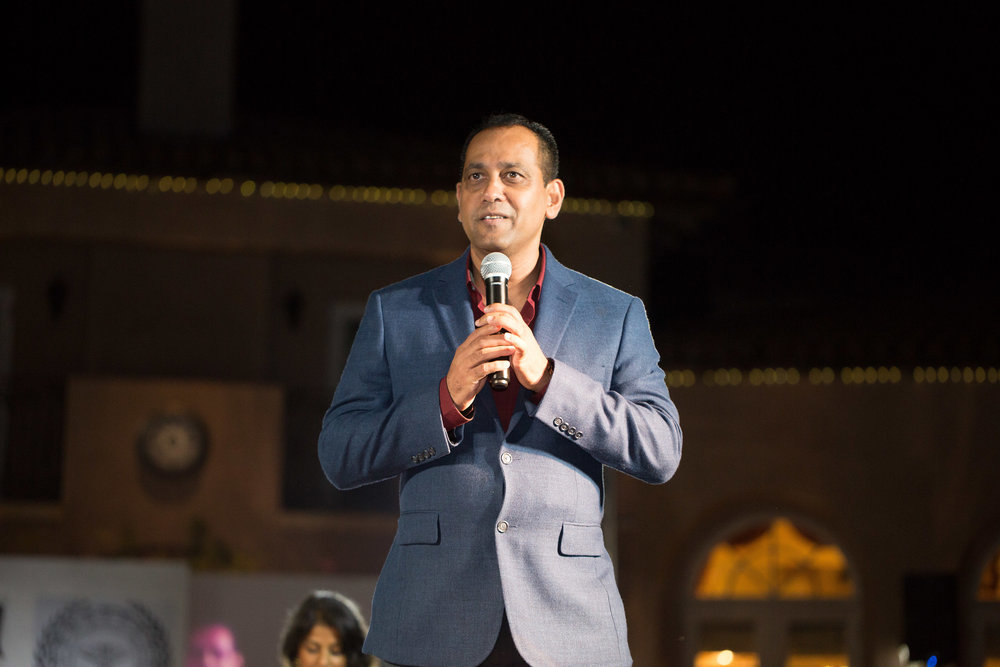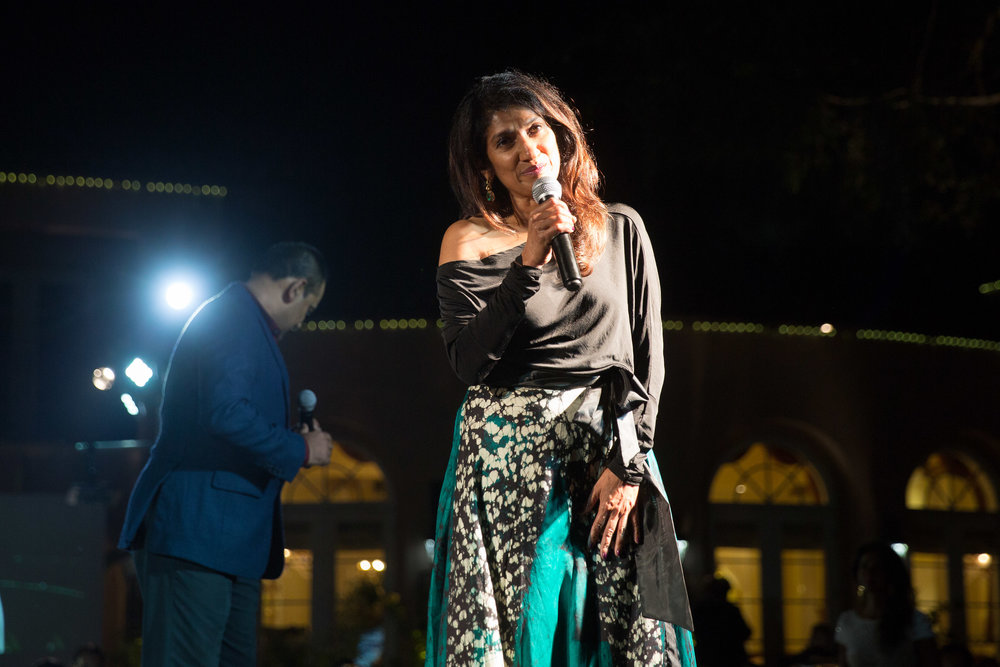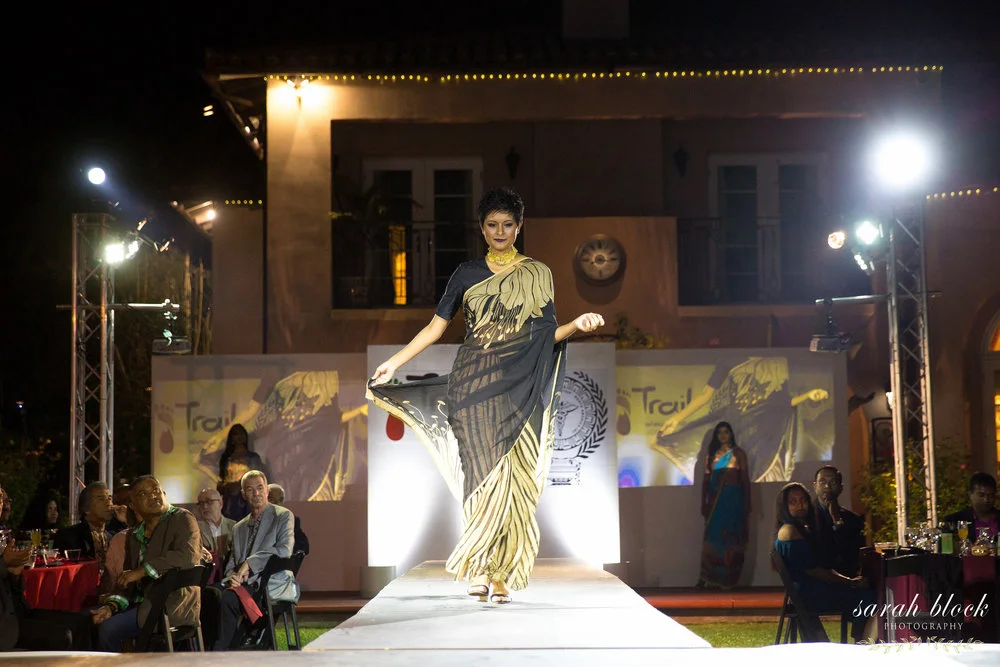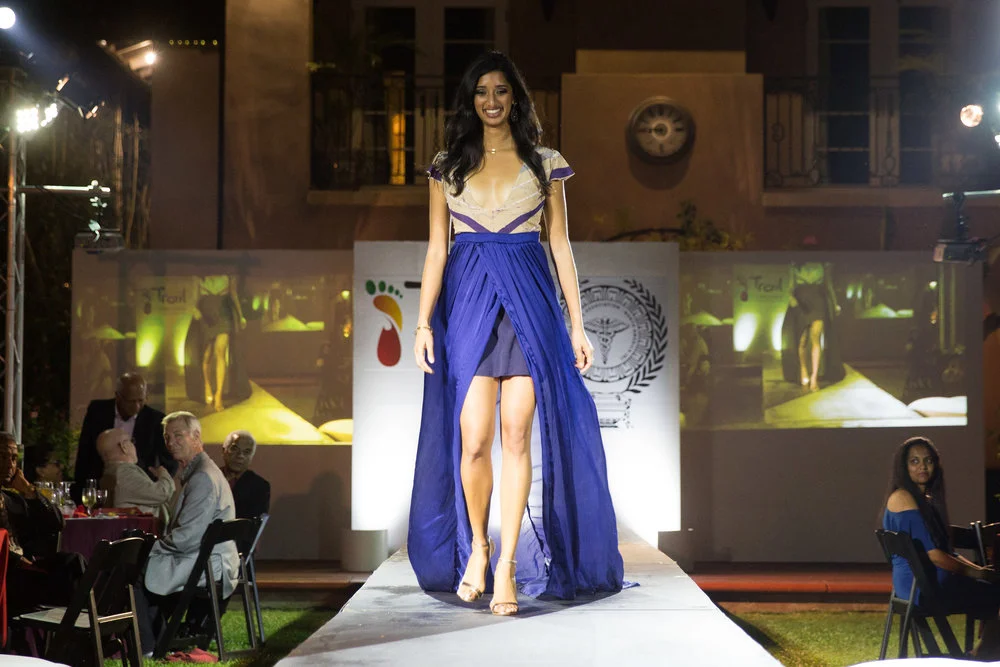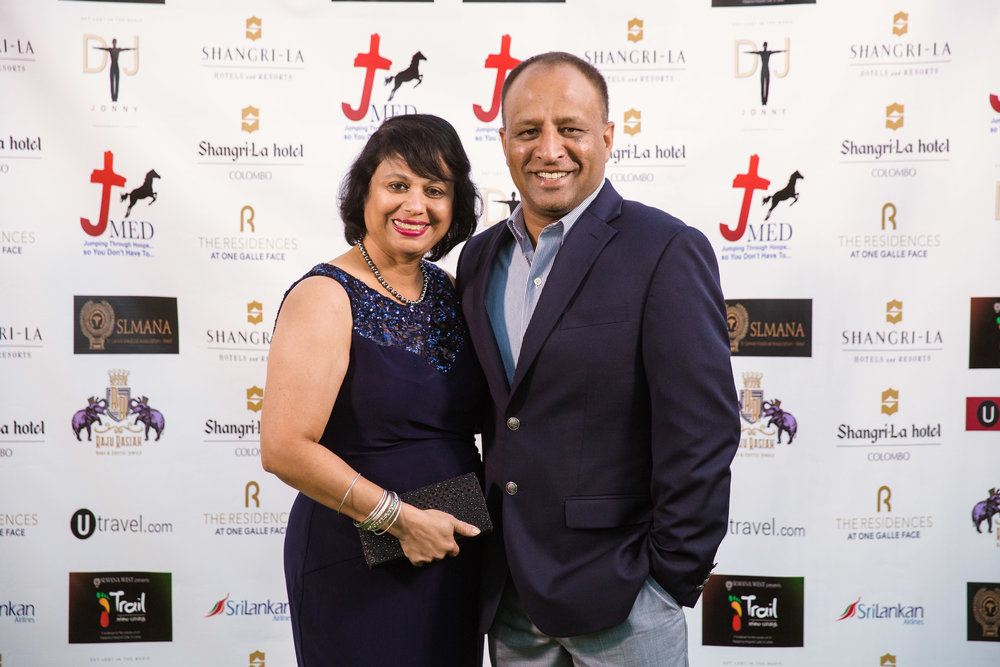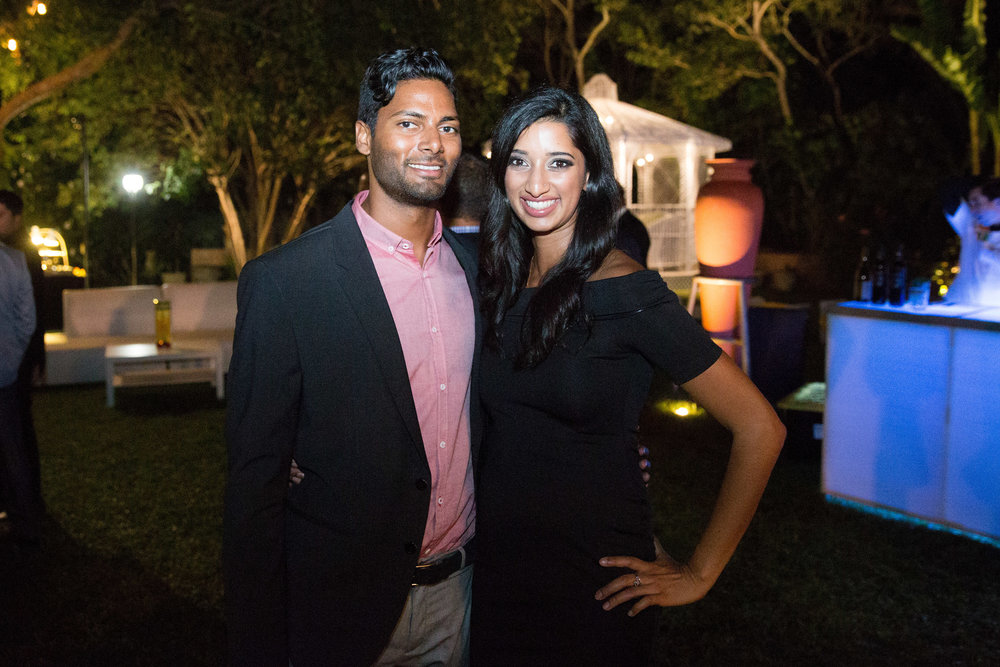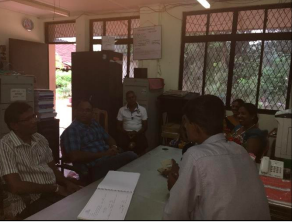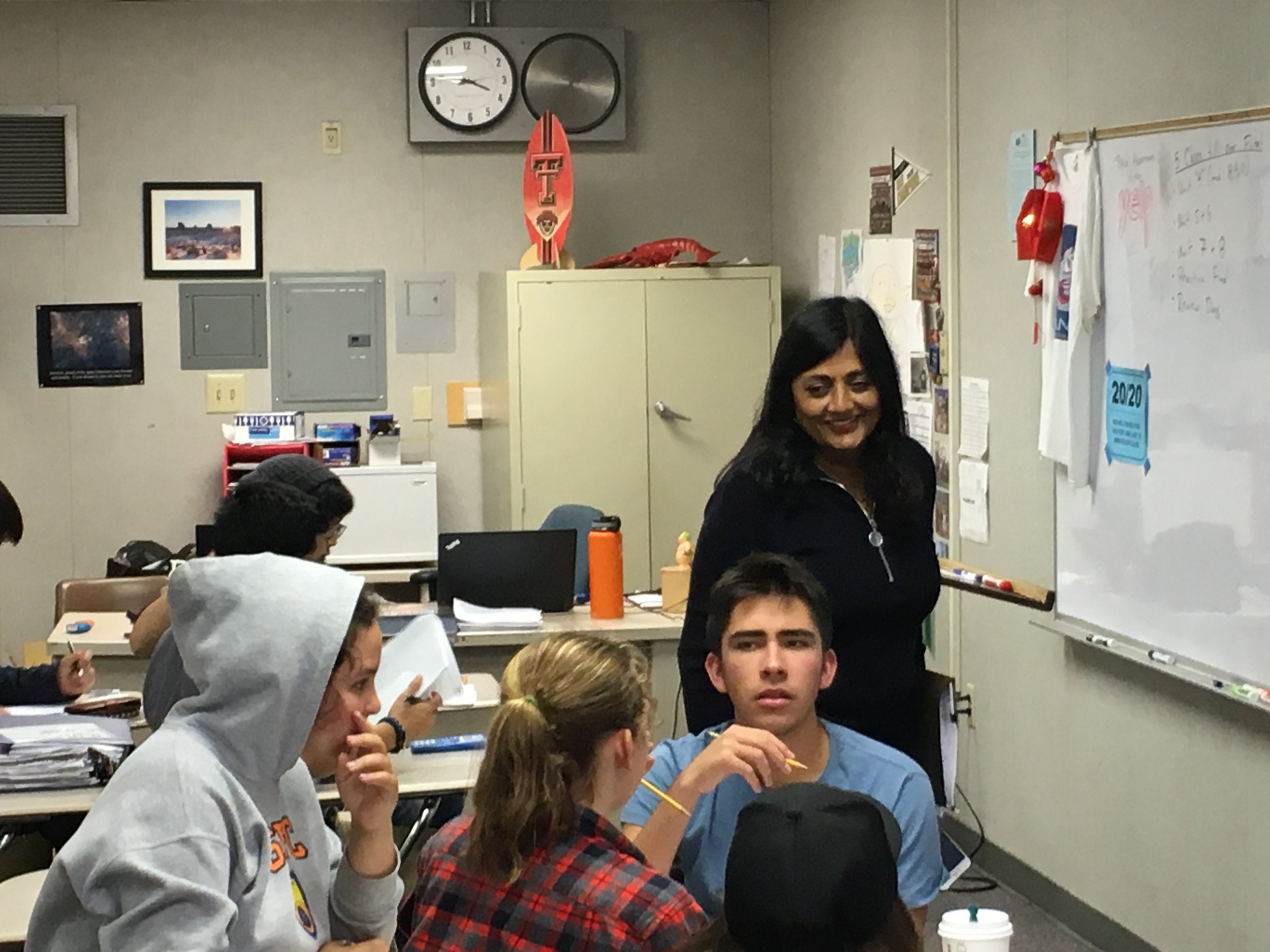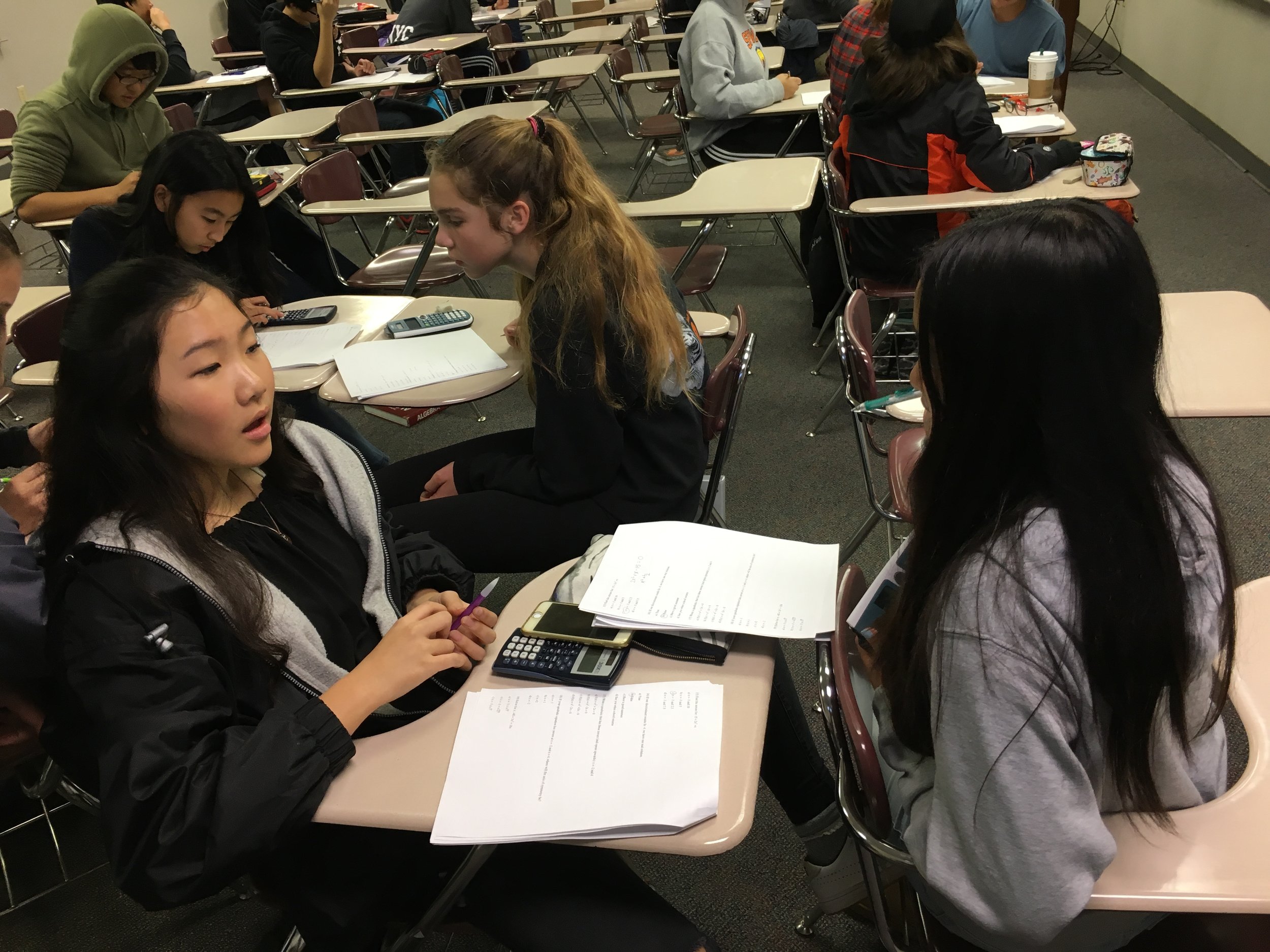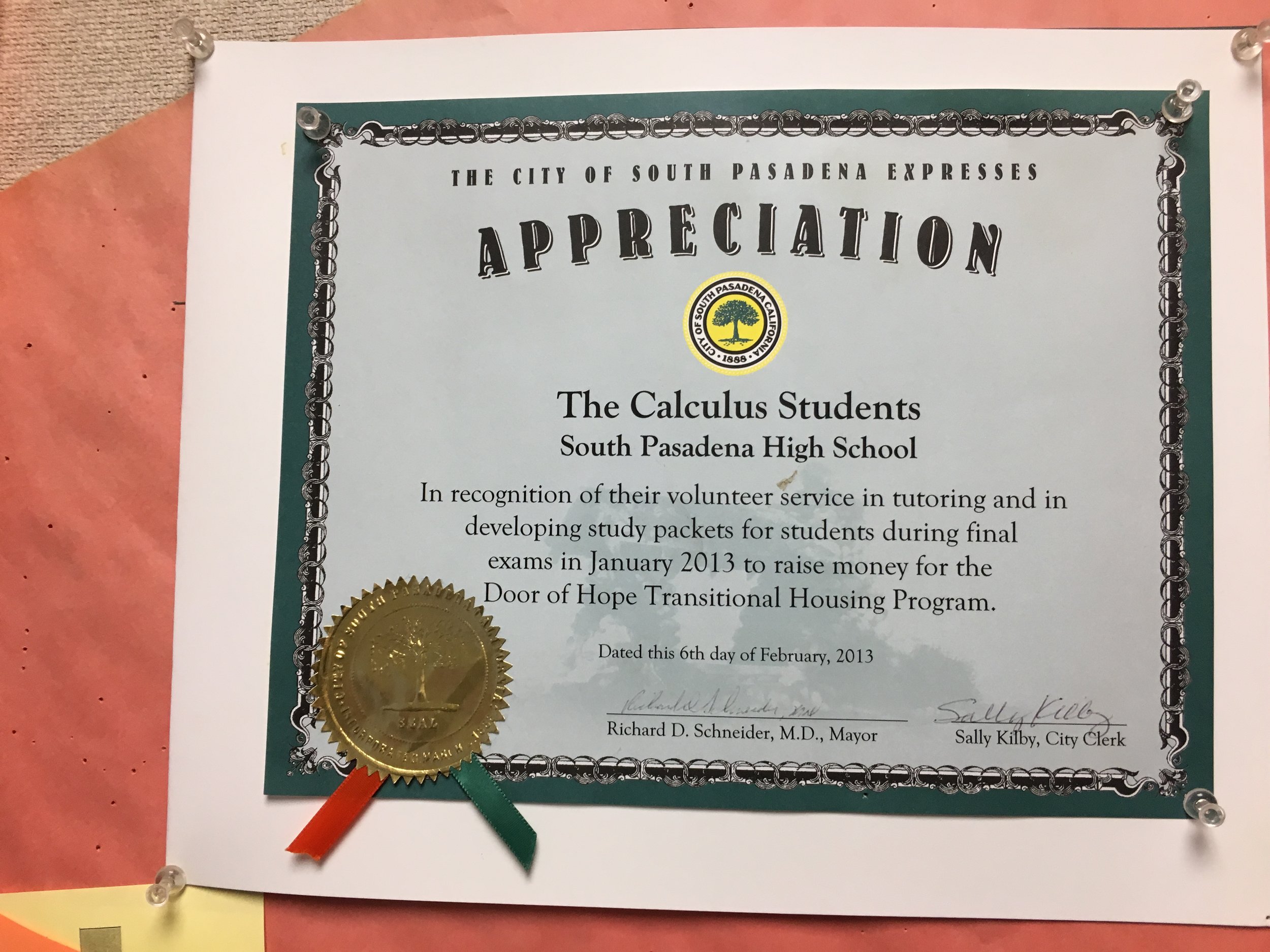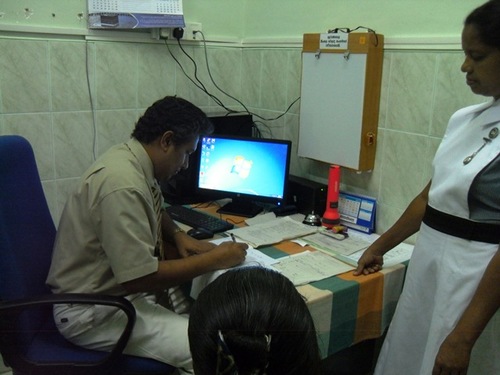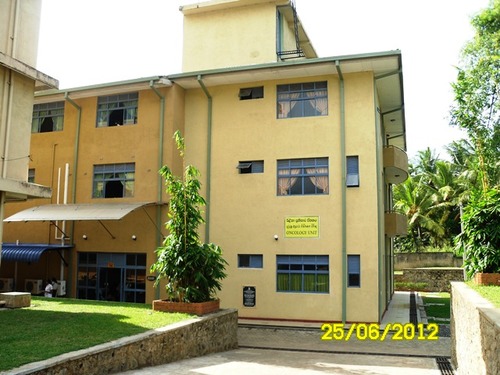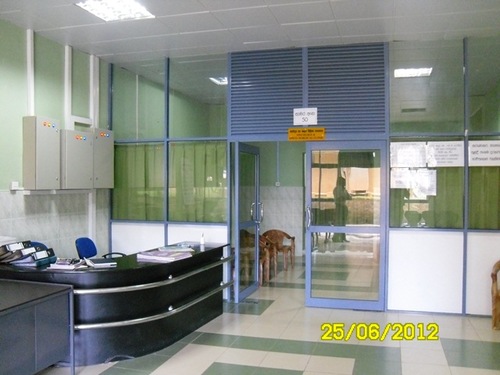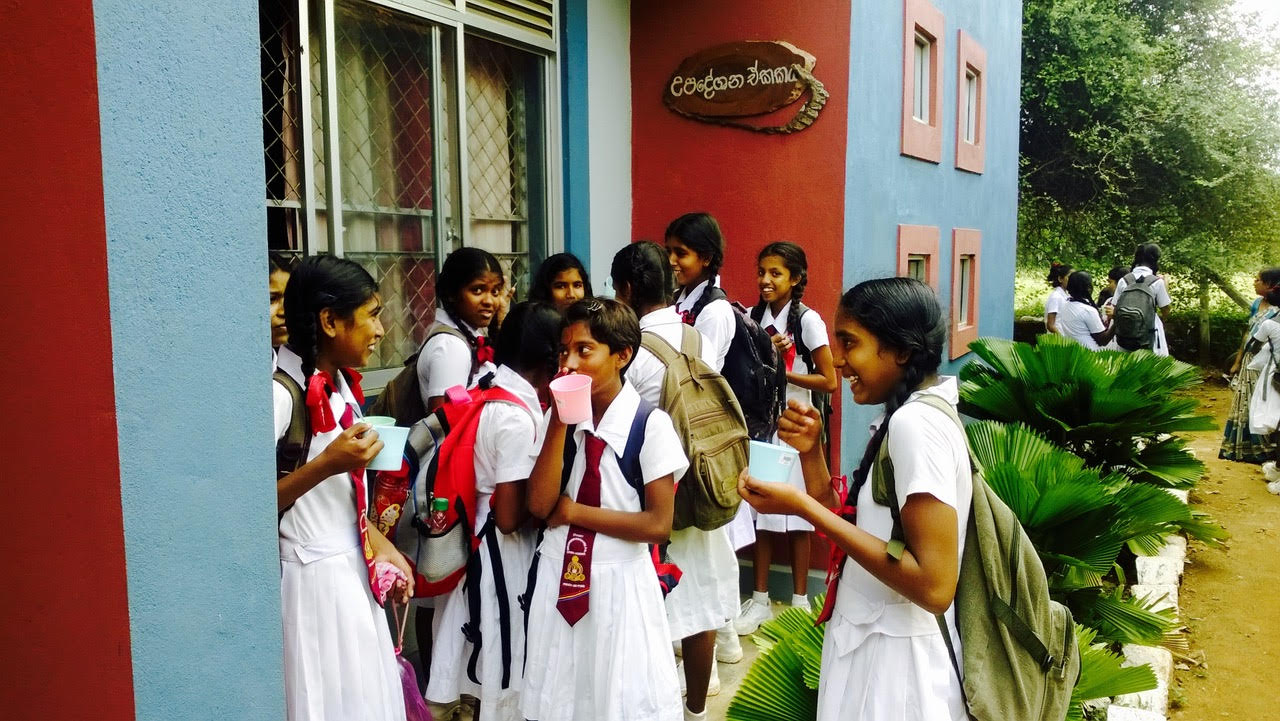Hope for Children- Fully Funded as of December 31st 2018 - Project Completed!
After two successful years this project was fully funded in December of 2018 with $70,000. The money was raised at the “Night of Hope” Gala 2016. SLMANA-WR Inc., thanks The Lions International Club of Sri Lanka for their partnership.
The Lions International Club of Sri Lanka has served the community for 58 years, assisting in the treatment of many underprivileged children with life threatening illness. The National Cancer Institute of Maharagama Cancer Hospital is a University-affiliated center where children with malignancies varying from leukemia to malignant tumors are treated. The children range in age from infants to teenagers.
The children’s’ parents cannot afford the funds that are required for their treatment protocols. Many of these children also succumb to infections because the parents are unable to afford expensive antibiotics. Some of these children have had their limbs amputated due to complications from bone cancer. They are in need of prosthetic limbs, which cost more than the annual income of their families.
TRAIL Fundraiser, 2017
SLMANA-West is proud to support TRAIL, a charity that is building a much needed and modern Cancer Clinic at the Karapitiya Hospital in Galle, Sri Lanka. Now, cancer patients in the southern part of our homeland will not have to travel to Colombo for diagnosis and treatment. Inconvenience, expense, and suffering will be greatly reduced, cancer outcomes will surely improve, and lives will be saved. Economically disadvantaged patients will be principal beneficiaries.
Our event in September, 2017, "An Evening of Elegance under the Stars," drew over 350 people and raised an unprecedented $125,000 for TRAIL. We were especially happy to have founder Sarinda Unamboowe present at our event.
Flood Relief and reconstruction of a Computer Lab in Nambapana Kanishta Vidyalaya, Ingiriya, 2016-2017
On May 15, 2016 Sri Lanka was hit by a severe tropical storm that caused widespread flooding and landslides in 22 out of 25 districts in the country, destroying homes and submerging entire villages. On May 25, the Government of Sri Lanka estimated that a total of 128,000 houses could have been impacted by the disaster, with 30,000 in need of reconstruction or rehabilitation. According to the Ministry of Education in Sri Lanka, 171 schools in North Western, Sabaragamuwa and Western provinces were damaged.
With a view towards restoring centers of education destroyed flood, the Sri Lanka Medical Association of North America Western Region (SLMANA-West), spearheaded by the hard work and dedication of Dr. Deepthi Jayasekera, donated $5,000 (749042.80 LKR) in flood relief to FCCISL (Federation of Chambers of Commerce and Industry of Sri Lanka). The particular goal of this fundraising effort was to reconstruct a school computer lab in Nambapana Kanishta Vidyalaya, Ingiriya. The main beneficiaries were the school children at Nambapana Kanishta Vidyalaya, Ingiriya. The project took place from May-September, 2017 and was successfully completed in December, 2017.
The photos below show the space before reconstruction and after.
In addition to funds raised to rebuild this computer lab, SLMANA-West also delivered medications and other personal hygiene and personal care supplies.
Calculus for a Cause, 2017
Calculus for a Cause is an annual fundraiser organized by Ruth Moonasinghe along with the South Pasadena School District. In 2017, year they earmarked the SLMANA–West projects for funding. Due to the tremendous dedication and tireless efforts of Ruth and the teaching staff of South Pasadena High School, nearly $8,000 was raised towards the SLMANA–West charities. It has been a very successful six months for the SLMANA–West organization. The members of the group believe that within each of us is the ability to change the world and recognizing this is the first step in making a difference.
Kurunegala Cancer Hospital, 2015
The Oncological Surgeon of this unit was greatly handicapped due to a lack of availability of surgical equipment needed. These items were not available even in other surgical departments of the hospital. The supply of the equipment has been a great boon to the onco-surgery unit of the hospital and are now being used for surgery.
Significant advances were made in the treatments of breast cancer patients and cancer surgery patients with nearly 1,000 new admissions. SLMANA-West ensured that the specialized cancer unit could provide screening, diagnosis, staging, treatment, follow up care, support and palliative care. The funding also provided for more advanced forms of care, including surgery, chemotherapy, hormonal therapy, immunotherapy, radiotherapy, and iodine therapy.
"We are very grateful to you and your organization for the kind gesture in donating the equipment worth Rs. 3,022,034.00. We were greatly handicapped without a Surgical Micro Saw and other accessories. Now we are making maximum use of them and were able to clear the backlog of surgeries within a short period."
Above you will see some images of the wards and other units and equipment at the hospital.
Patients are able to be referred directly for immediate care, and new patients are being assessed by a consultant physician. The intranet and data collection have all been computerized to assist in streamlining patient care. The funds also supported the surgical theater, which allowed for many major and minor surgeries to be completed.
SLMANA-West has partnered with the Wayamba Cancer Society to provide additional funds to support more radiotherapy, iodine treatments, and MMG treatments. We hope to upgrade to a fully-equipped, efficient, patient friendly cancer unit but require more funds to fulfill this aim.
A letter of gratitude from the Kurunegala Cancer Hospital
Porridge Nutrition Drink - Kola Kanda, 2015
Starting in 1994, a series of mysterious deaths was discovered in the North Central Province of Sri Lanka, mostly among rice paddy farmers. The victims, mostly healthy males in their 30s and 40s and without any history of diabetes or hypertension, developed signs of Chronic Kidney Disease (CKD), which quickly progressed to End stage Renal Disease (ESRD).
Without adequate specialized treatments, most patients succumbed to the illness within one or two years. Over the next two decades, the disease spread to the surrounding farming areas exposing a total population of nearly 3 million, with 69,258 diagnosed patients and almost 22,700 reported deaths. These individuals were the bread winners of the family, which led to the surviving family becoming destitute and literally starving.
Our program involves the preparation of a “kanda” (a special porridge) out of the traditional varieties of rice and green leafy vegetables. We serve it at breakfast in the schools to the children in the areas that have the highest prevalence of CKD in the North Central Province. The traditional varieties of rice absorb fewer toxins from the environment, and the antioxidants contained in these varieties are also an effective way of limiting the toxic effects of the agrochemicals.
Most of the children in this area have lost their fathers due to kidney disease. They typically come to school without breakfast. We aimed to educate the farmers to grow traditional varieties of rice without using pesticides, which we suspect is the cause of this mysterious spike in kidney disease. We buy the traditional rice from the farmers at a guaranteed price and know that we are feeding the children with a very nutritious meal, known as kanda.
Traditional rice is a good source of protein and iron compared to more developed rice varieties. Farmers in the endemic regions are the suppliers of traditional rice. These varieties are not dependent on pesticides and synthetic fertilizers. Therefore, it is an indirect promotion of chemical-free farming.
The program is being implemented at Palugaswanguwa Maha Vidyalaya. Teachers and parents take care of preparation and distribution of the kanda.
Cost for one glass of kanda: Rs 10/=
Number of Students: 470
Number of Teachers: 30
Cost of kanda for a day: Rs.5000/=
Cost of kanda for a month: Rs.100,000/=
Children's Heart Project, 1998
With the generous contribution of the proceeds of the 1998 Dinner Dance event, we were able to purchase and donate pediatric cardiac surgical instruments worth over $10,000.00 to the Children’s Heart Center at the National Hospital in Colombo.
The children and parents of children with heart defects and diseases in Sri Lanka are thankful for your support and greatly appreciate your generosity. Since the inception of the project in 1990, the following accomplishments have been made:
17 missions
Purchase of over $20,000,000 worth of surgical instruments that were donated to the pediatric cardiac program at the National Hospital in Colombo
Donation of two refurbished heart-lunch perfusion machines valued at $50,000
Purcahse of 10 optic loupes, each valued at $1,500, for the cardiac surgeons in the National and Jayawardenapura hospitals
Purchase of a new state of the art heart-lunch perfusion machine valued at $85,000. This donation was made possible due to the generosity of SLMANA-West and another benefactor
Donation of $185,000 SONOS 5500 HP Echocardiography machine with the assistance of another Foundation (founded by a Sri Lankan residing in the UK)
Shipment of over $2.5 million worth of donated and purchased medical and surgical supplies and medicines for the cardio-thoracic surgical units, cardiac catheterization laboratories, and cardiac unit
Help in the opening of a Children's Heart Center at the National Hospital in Colombo
Sri Lanka has a birth rate of 18.16 per 100,000. The incidence of heart defects is 8 to 10 per 1,000 live births. With the population now close to 20,000,000, the number of children born with heart defects in Sri Lanka is estimated at around 2,500 per year. Of these, about 1,500 per year will need surgical or catheter intervention. Many of these defects, if corrected at the appropriate time, will produce a cure and will enable these children to be contributing adults. Many of the families of these children do not have the financial means to pay for surgery and depend on the National Health system or the generosity of others.
Prior to 1990, less than 50% of open heart procedures were done at General (National) Hospital in Colombo. Now, around 500 pediatric surgeries per year can be done.
The Lady Ridgeway Children's Hospital in Colombo has a cardiac sub-specialty unity. With the leadership of the Director, Dr. Jayantha Wimal, and the cardiologist, Dr. Narenthiram, a project proposal to set up a Specialized Pediatric Cardiac Center at the Children's Hospital has been initiated. This will greatly expedite the diagnostic and surgical procedures which are currently done at the National Hospital. Funding is needed to supplement government involvement.
Please take a moment to read about our Current Projects!
